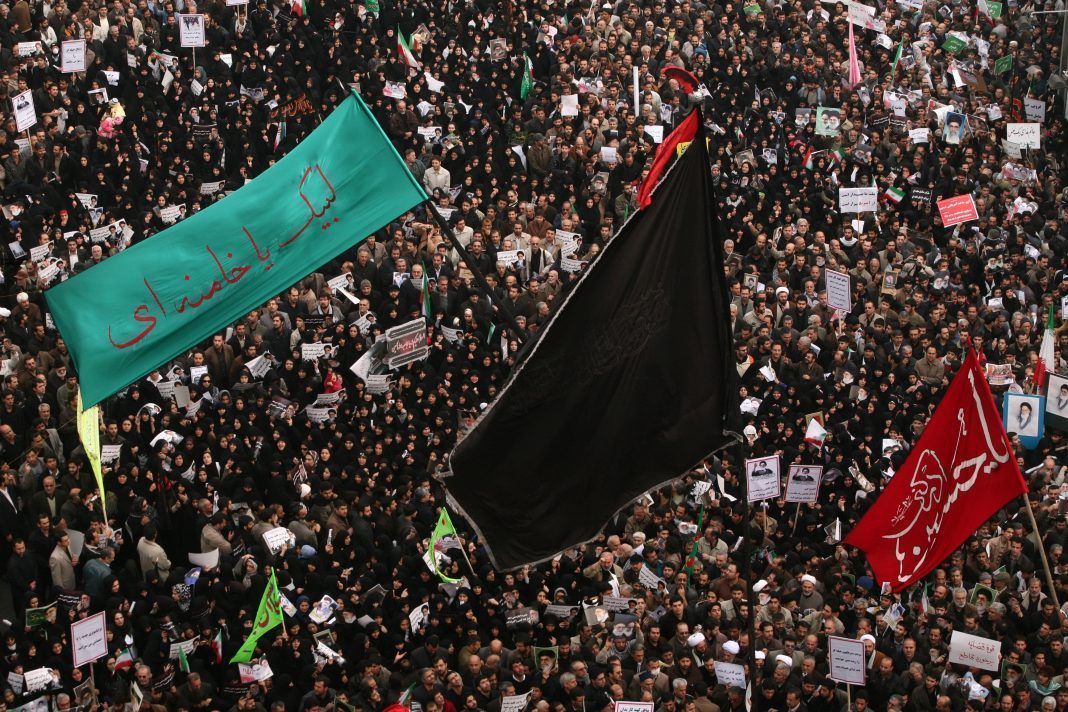By Reza Parchizadeh
[Reza Parchizadeh is an editorialist and commentator on Iranian affairs. The opinions expressed are his own.]
War is not always physical: it can also be psychological. A two-pronged approach involving both types of warfare ensures victory. Much to the disappointment of the Communists, labor unrest in the 1920s and 1930s did not culminate in proletarian revolutions in capitalist countries as had been predicted by Karl Marx (1818-1883) and Friedrich Engels (1820-1895) less than a century earlier. Many people started to rethink Marx and Engels’s assertions when the so-called “historical certainty” of Communism failed to come to pass.
Among the most notable thinkers of this period was the Italian neo-Marxist philosopher Antonio Francesco Gramsci (1891-1937), who died in prison during the Fascist government of Benito Mussolini. Gramsci, who spent a lifetime exploring Marx and Engels’ ideas, could not understand how people who had fought for their freedom, as he had done, then willingly embraced the Fascist ideology that enslaved them and deprived them of their fundamental rights. Gramsci came to the conclusion that the state rules not just by asserting its military, political and economic power, but also by promoting a particular ideology.
Through propaganda, the state institutionalizes its ideology until it becomes a social and cultural norm. It discourages critical thinking in a country to such a degree that people come to align their interests with that of the power that enslaves them. So instead of rebelling against a despotic regime, they join forces with it. Gramsci called this phenomenon “cultural hegemony.”
Iranian society is struggling with the same problem. The Islamic Republic has managed to control public opinion, the cultural climate, and the national psyche through force, money, and indoctrination.
There are those who turn a blind eye to injustices committed in the name of national interest, even though they have no vested interest in the regime. For instance, Iran’s nuclear program and regional activities benefit only the state, yet many people support them for no apparent reason.
In this commentary, I will aim to demonstrate how the Islamic Republic, as a “psychological regime,” has attempted to enslave the nation, in the past four decades, and turn the public into its unwitting partner in crime. I will also argue that it is imperative to stand up to this authoritarian regime if we are to free the Iranian people from its clutches.
In the early 1970s, the political current which later manifested itself as the Islamic Republic exploited a century of authoritarian rule to capture the collective consciousness of the entire nation. The Iranian people were the target of that social and cultural onslaught. After seizing power, the regime destroyed any traces of secularism in the country and consolidated its rule over the nation.
The Islamic Republic has methodically eliminated the opposition, dissidents, political groups, and activists in the past four decades. It has also controlled the print and broadcast media. It doesn’t allow the Iranian society to function outside its rigid and oppressive structure. All thoughts, ideas, and actions must filter through the establishment’s ideological framework. It has routinely used extreme violence to silence voices of discontent, including but not limited to the mass murder in the 1980’s of dissidents and political prisoners. The Islamic Republic has calmed the public by generating a false sense of national security. People have turned a blind eye to the regime’s gross violations of human rights and its other social and economic crimes.
The Islamic Republic has blocked all paths to change and progress. It only shows flexibility in areas that are in its best interests. Those who oppose the regime are, in fact, unknowingly doing its bidding and, as a result, prolonging its rule. In other words, the Iranian public is suffering from “Stockholm Syndrome,” meaning that instead of trying to topple the Islamic Republic, people have developed a psychological alliance with it.
The Islamic Republic has imposed a political and cultural hegemony over its people. In effect, it has waged a cultural war on the Iranian nation. It has, to all intents and purposes, invaded and occupied Iran. It is, therefore, the responsibility of the people to fight back against the tyranny of their oppressor. Pro-democracy forces must battle the occupying troops anytime and anywhere and drive the invaders out of Iran.
It is a big mistake to think that appeasing the regime and turning a blind eye to its crimes would somehow transform its despotic and violent nature. The Iranian nation has endured 40 years of occupation. Nothing will change as long as the public mindset remains the same in the country. To establish lasting peace in Iran, we must first drive out the occupying forces of the Islamic Republic.
[Translated from Persian by Fardine Hamidi]


